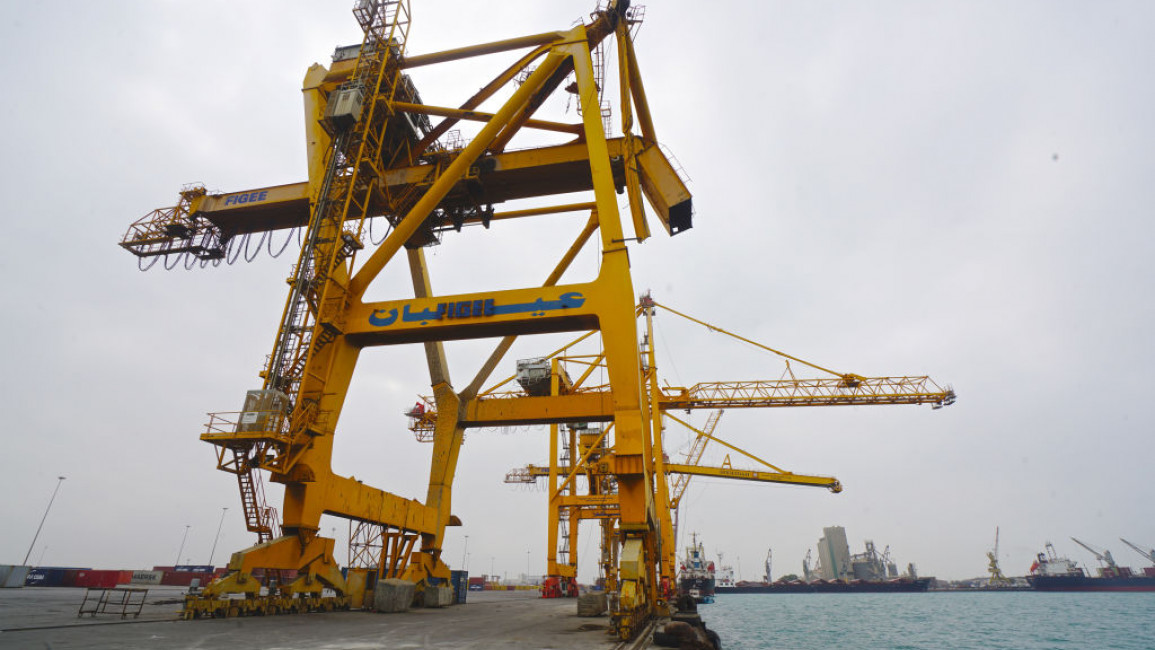Yemen's Hodeida port receives first fuel ship under ceasefire
A tanker carrying badly needed fuel arrived in Yemen’s blockaded port of Hodeida on Sunday, as a ceasefire meant to stop the fighting in the war-torn country for two months entered its first full day.
The truce agreement, which took effect on Saturday evening, allows for shipments of fuel to arrive in Hodeida and for passenger flights to resume from the airport in the capital of Sanaa. Both Hodeida and Sanaa are held by the Iranian-backed Houthi rebels.
The agreement comes after a significant escalation in hostilities in recent weeks that saw the Houthis claim several attacks across the country’s borders, targeting the United Arab Emirates and Saudi Arabia.
Essam Al-Motwakel, spokesman for the Houthi-run oil corporation, said the Saudi-led coalition allowed the vessel — carrying mazut, a low-quality fuel oil — into the port at Hodeida. The port handles about 70 percent of Yemen’s commercial and humanitarian imports.
He called on UN envoy Hans Grundberg to work with the coalition and accelerate the arrival of other vessels to ease a longtime fuel crisis in Houthi-held areas.
During the two-month truce, the Saudi-led coalition will allow 18 vessels carrying fuel into the port of Hodeida, and two commercial flights a week from the Yemeni capital to Jordan and Egypt, according to a copy of the truce obtained by The Associated Press (AP).
The UN envoy has called for both sides to agree on opening roads around Taiz and other provinces, the ceasefire document said. Taiz, which remains partially held by forces fighting on behalf of the internationally recognised government, has been blockaded by the Houthis for years.
"The success of this initiative will depend on the warring parties’ continued commitment to implementing the truce agreement with its accompanying humanitarian measures," Grundberg said on Saturday in announcing the truce had taken effect.
As the truce entered its first full day on Sunday, the AP spoke to a half dozen Yemenis who hoped the truce would not collapse as other ceasefires have.
"It's good, but we learned from past experience that it could collapse anytime," said Amer Al-Hubani, a civil servant in the city of Taiz. "We hope things move smoothly this time."
Arafat Al-Sabari, a 32-year-old labourer who lives with his six children in the Sweida displaced persons camp near the key central city of Marib, was also skeptical.
"We hope it stands, but unfortunately ground fighting continued until late at night after the truce," he said. The Houthis have tried to seize Marib repeatedly over the past year.
The UK & US may have given Yemen £3bn+ in humanitarian aid since 2015, but this is tiny compared to what firms like BAE Systems & Lockheed Martin are making from the war. @NabilaRamdani exposes the UK's blindness to its complicity in 'wars of choice' 👇 https://t.co/UJSDwqu4WI
— The New Arab (@The_NewArab) April 3, 2022
The UN-announced ceasefire, supported by both sides, is the first time since 2018 that the two have publicly agreed on such an initiative.
At a meeting in the Swedish capital of Stockholm, leaders set a framework that called for a halt in fighting in Hodeida and an exchange of more than 15,000 prisoners. The deal, seen as an important first step toward ending the conflict, was never fully implemented.
The conflict in Yemen began with the 2014 takeover of Sanaa by the Houthis. A Saudi-led coalition allied with the government has been fighting the Houthis since March 2015. Both sides have been accused of grave violations by rights groups.
The war in Yemen has spawned the world’s worst humanitarian crisis, leaving millions suffering from food and medical shortages. It has killed over 150,000 people, including fighters and civilians, according to a database project that tracks violence.
Separately, a fire broke out on Sunday in a camp for displaced persons near Marib, killing at least seven people including five children, said Saleh Nasser, head of a local coordination office for displaced people.
He said the fire in the Shabwani camp was caused by an electric short circuit. It also injured another person, and destroyed the shelters of two families, he added.



